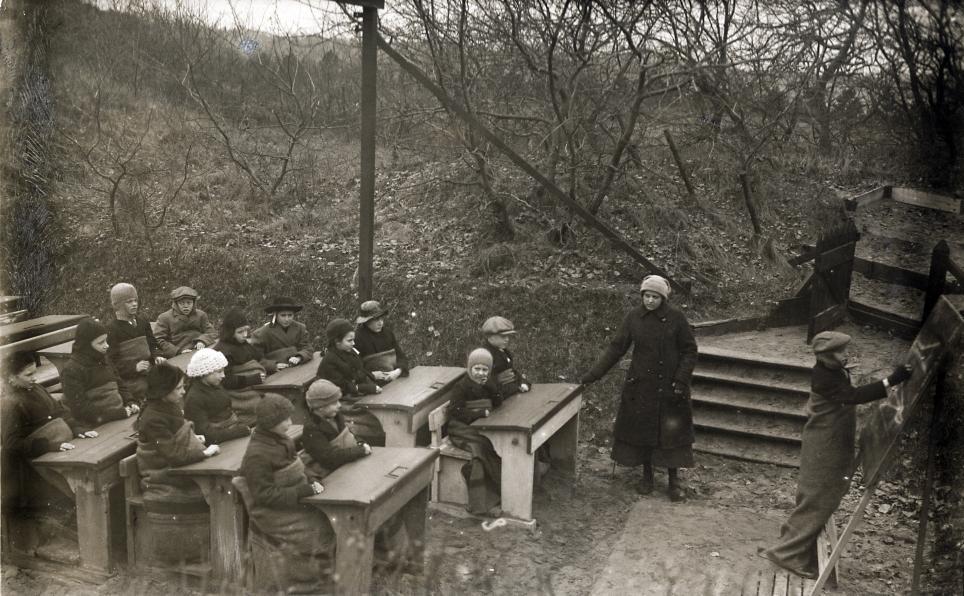The yoga of school
Just to make things more interesting, let’s learn in the freezing cold. (Photo from the Dutch National Archives)
Yoga is a complex practice with many spiritual, physical, and emotional dimensions. For one thing, it is a tool for observation.
As we practice yoga, we discover the literal and metaphorical places where we may be tense, resistant, or in pain. We notice the difference between the way it feels today and the way it felt yesterday. We experience growth, not only in the sense of being able to do new things but also by seeing changes in the way we approach things we’ve tried before.
By observing ourselves and our experiences without judgment, we remember that yoga is not a competition to be won but the pathway to a state of oneness that we surrender to. Easy as pie!
I’m not a yoga expert, but I am drawn to the discipline because of the deep spiritual truths inherent within it. Yoga is entirely about process, not results.
Likewise, learning is about the process and the experience — not the outcome.
We confront deep questions of identity, worthiness, and our own capacity.
We grow, and therefore we change.
We observe the places where we feel resentment, frustration, fear, or inadequacy and lean into them as much as we can handle.
We confront our resistance, trusting in the love and guidance of others to help us through to the other side.
Do you see the parallels with yoga?
School is generally about results. Accordingly, it can be an inhospitable place for learning. But if we could make space in school for the challenges of deep learning — for time spent on the leading edge of our abilities, facing our discomfort and fear — we would, ironically, see greater results. We would be fostering powerful transformations that go far beyond the shallow incremental gains offered by one-size-fits all homework and multiple-choice tests.
Too many school-related tactics depend on fear and obedience. What happens if we let go of these? What if we instead allow students to discover their infinite capabilities and a passionate desire for growth (the opposite of fear)?
The system doesn’t have to change to make this a reality. Generations of mystics have discovered boundless freedom even in grievous circumstances of captivity.
It’s not easy. But sometimes that’s the point.
